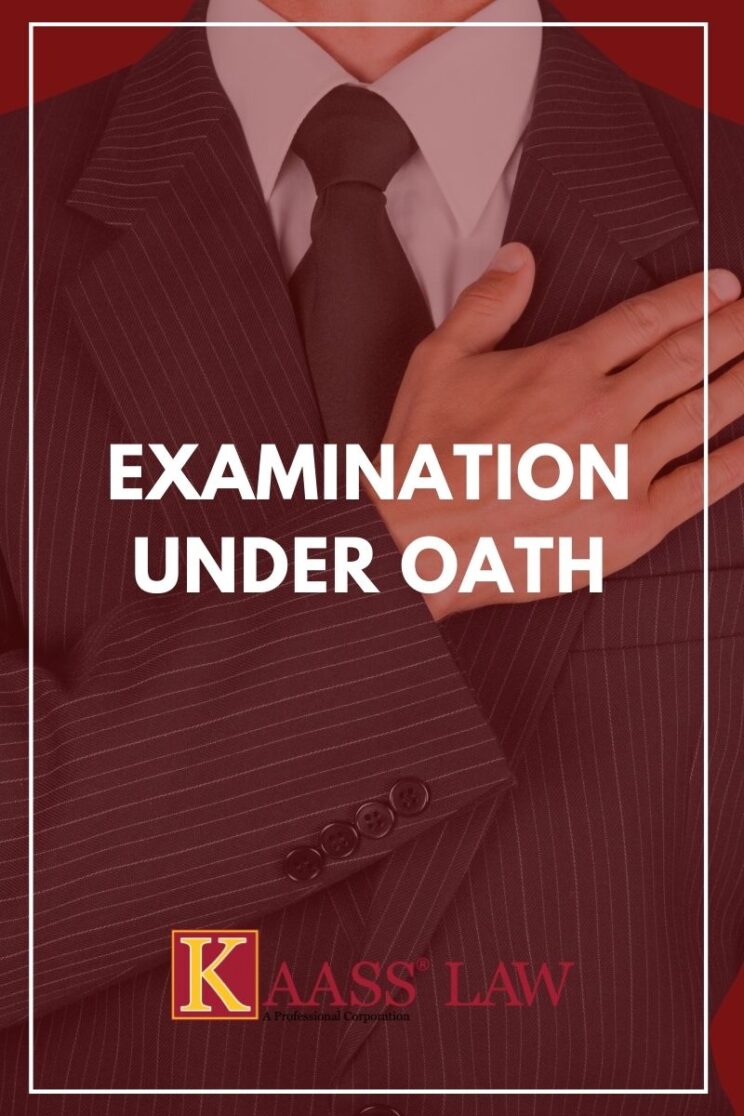What is an Examination Under Oath?
An examination under oath is a request by an automobile insurance company to have a policyholder provide sworn testimony under penalty of perjury.
Why Is an Examination Under Oath Requested?
In examination under oath is typically requested because there is unresolved conduct by the policyholder that further needs investigating. In extreme cases, an examination under oath may be requested from the policyholder due to accusations involving insurance fraud.
Can a Policyholder Refuse to Participate in an Examination Under Oath?
No, a policyholder cannot refuse to participate in an examination under oath. In fact, a policyholder’s claim can be denied based on failing to submit to an examination under oath.
Who is the Examination Under Oath Conducted by?
The examination under oath is typically conducted by an insurance defense attorney.
What a Policyholder Should Know Before Participating in an Examination Under Oath?
The following is a list of things, although not a complete list, that the policyholder should know before participating in an examination under oath:
- The insurance company may conduct the examination only to get information that is relevant and reasonably necessary for handling or investigating the claim;
- The insurance company may not conduct an examination for any improper purpose, such as to harass or intimidate an insured;
- The examination may only be conducted at a reasonably convenient place, upon reasonable notice, and for a reasonable length of time;
- The insured may be represented by their counsel and may record the examination in its entirety;
- The insurance company, through its counsel, may notify the policyholder that, they may request a copy of the transcript in order to review and make corrections, if necessary;
- Objections can be made during an examination, however, if an objection results in the policyholder failing to provide information that is material to the claim, the insurance company may deny the claim in whole or in part;
- A policyholder who submits a false or fraudulent claim may be subject to all criminal and civil penalties under California law.

